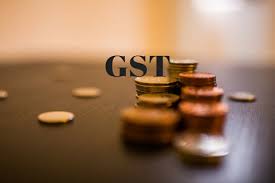The government is planning to compare data filed by companies with different departments to detect discrepancies and check whether there’s been any leakage in tax collected, raising the prospect of even greater scrutiny, said people with knowledge of the matter. Goods and services tax (GST) returns, income tax filings and transfer pricing submissions will be analysed and synchronised in a manner that hasn’t been possible before, they said.
Multinationals including banks, fast-moving consumer goods (FMCG) companies, tech firms and automobile manufacturers fear that such cross-referencing of data will lead to increased scrutiny and eventually higher tax outgo.
Such comparisons weren’t possible earlier as the data wasn’t uniform nor was it organised in manner that would allow such matching. It was also the case that various departments didn’t ordinarily share data.
Many companies have been urgently asking tax advisers to advise them on how to file returns so that they don’t end up being slapped with excessive levies. Some transactions such as royalty payments, CEO salaries and valuations of Indian operations will now come under the scrutiny of not just the indirect tax department but also the direct tax and transfer pricing departments.
For instance, when it comes to transfer pricing, the tax department uses Function Assessment and Risk (FAR) analysis to determine how much margin should be allowed and the extent of the transfer pricing demand that can be raised from a multinational. However, under GST, the valuation rules for these transactions between the Indian subsidiary and its foreign parent may result in additional taxes.
Beginning this year, multinationals will also have to submit details about their global operations to the Indian tax authorities.
Under the Base Erosion and Profit Shifting (BEPS) framework, multinationals are required to submit details about their operations in every country, revenues earned, margins, and number of employees hired among other things. This is mainly to determine if companies are using any tax structures and escaping taxes.
With regard to imports, transactions such as reverse charges, where money for services incurred by one entity or company is paid by another, will also come under scrutiny.
Source: Economic Times
We have launched Single Platform on GST Compliances In India, assisting in 4 areas – 1) Compliances, 2) Litigations & Hearings, 3) Training 4) Consultancy. Click this link for any assistance.
 customersuccess@taxmantra.com
customersuccess@taxmantra.com Toll Free:
Toll Free:  Contact Us
Contact Us


